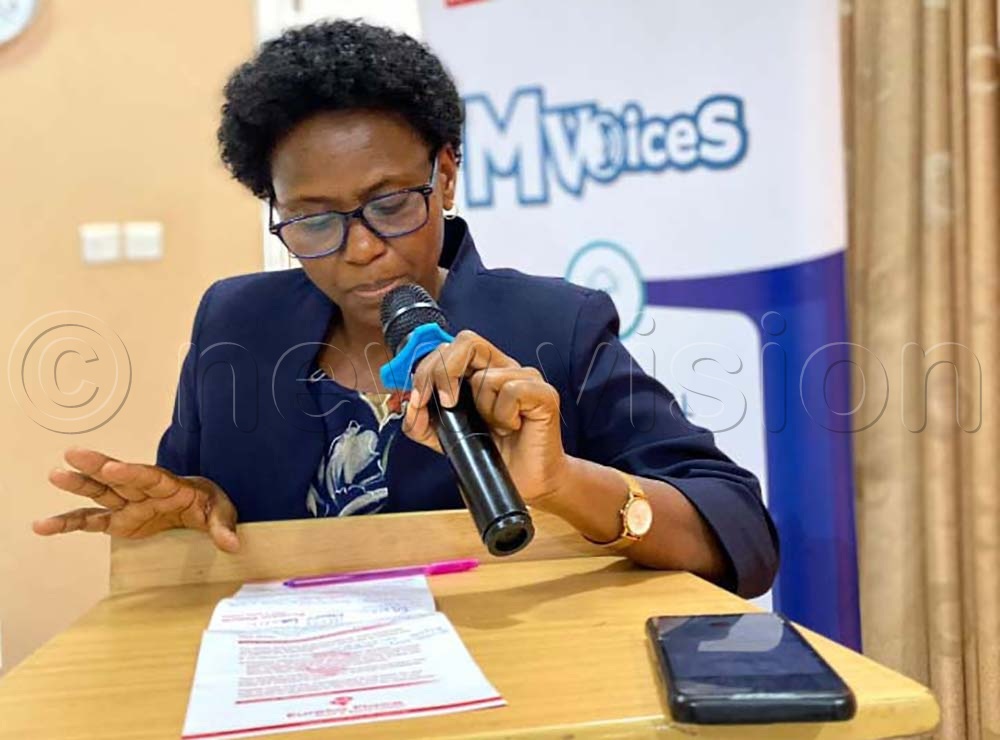Rights advocates call for inclusive PWDs health services
“We want the Government to ensure interpreters are available in health centres and train medical personnel in Braille and sign language,” Kobusinge said.
Charles Tumwebaze, the Executive Director Together Alive Health Initiative remarks during the 2nd Disability Summit. (Credit: Violet Nabatanzi)
Disability rights advocates have urged the Government to improve access to health care for persons with disabilities (PWDs) by training medical personnel in Braille and sign language and making health facilities more inclusive.
Catherine Kobusinge, the executive director of Hoima Child Rights Network Club, says many people with hearing and visual impairments struggle to access health services due to communication and structural barriers.
“We want the Government to ensure interpreters are available in health centres and train medical personnel in Braille and sign language,” Kobusinge said.
“Health issues are confidential, and when an interpreter is needed, it compromises privacy for hearing-impaired persons.”
Kobusinge added that most hospital buildings and maternity wards remain unfriendly to people with physical disabilities, with few ramps and high beds that make access difficult.
She also noted that crucial health information on diseases such as Ebola and Mpox is rarely provided in Braille or sign language.
According to the UNICEF (2019) report, about 2.2% of Uganda’s young people have disabilities, with 7.5% of school-going children aged 5–17 requiring special support.
Speaking during the 2nd disability summit in Kampala on October 24, 2025, Dr Irene Mwenyango, the assistant commissioner for adolescent and school health at the health ministry, said the Government has made deliberate efforts to promote inclusive health services.
Dr. Irene Mwenyango, the Assistant Commissioner for Adolescent and School Health at the Ministry of Health, speaking during the 2nd Disability Summit in Kampala. (Credit: Violet Nabatanzi)
“We are working with the ministries of education and gender to ensure inclusiveness, and we continue building the capacity of health workers to make facilities more accessible,” she said, adding that Braille use is being considered despite cost challenges.
She acknowledged the shortage of sign language interpreters in health facilities but encouraged health workers to take basic sign language courses.
Meanwhile, Myleen Kyomuhendo counsellor and disability Facilitator at Tunaweza Foundation, revealed that women with disabilities continue to face stigma and are often left out of HIV awareness campaigns.
“We need health information in Braille and sign language to ensure our women and youth are protected,” the Foundation noted.
Moses Kabusu, MP for Kyamuswa County, urged the Government to allocate funds to operationalise the Disability Act 2020 and international conventions Uganda has signed.
“A holistic approach is needed so that all ministries integrate disability inclusion in their plans and budgets,” he said.
Together Alive Health Initiative (TAHI) executive director Charles Tumwebaze said this year’s summit themed: Building Inclusive Health Systems that Leave No Person with Disability Behind, aimed to amplify voices of young PWDs in health policy discussions.
The summit was supported by HIVOS and the Swedish Government under the SRHR Regional Fund, which runs disability inclusion projects in Mukono, Wakiso, and Kampala.